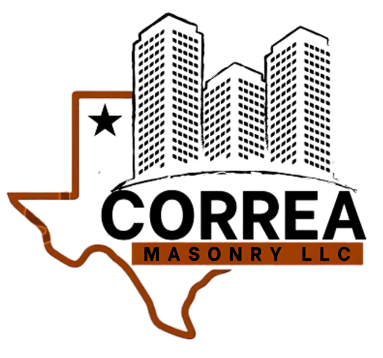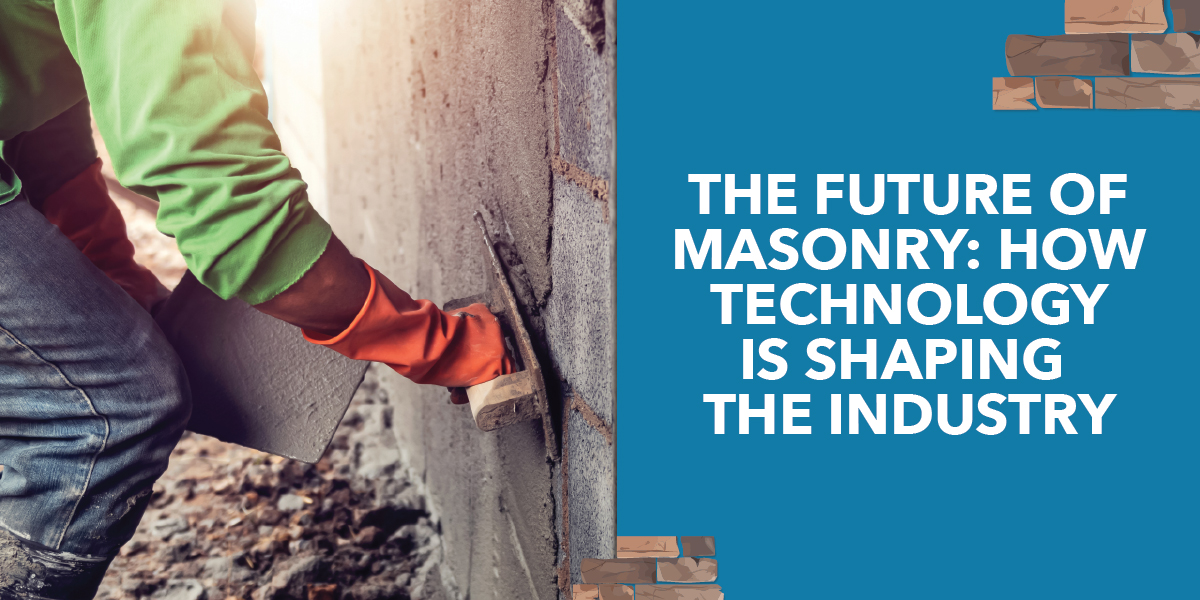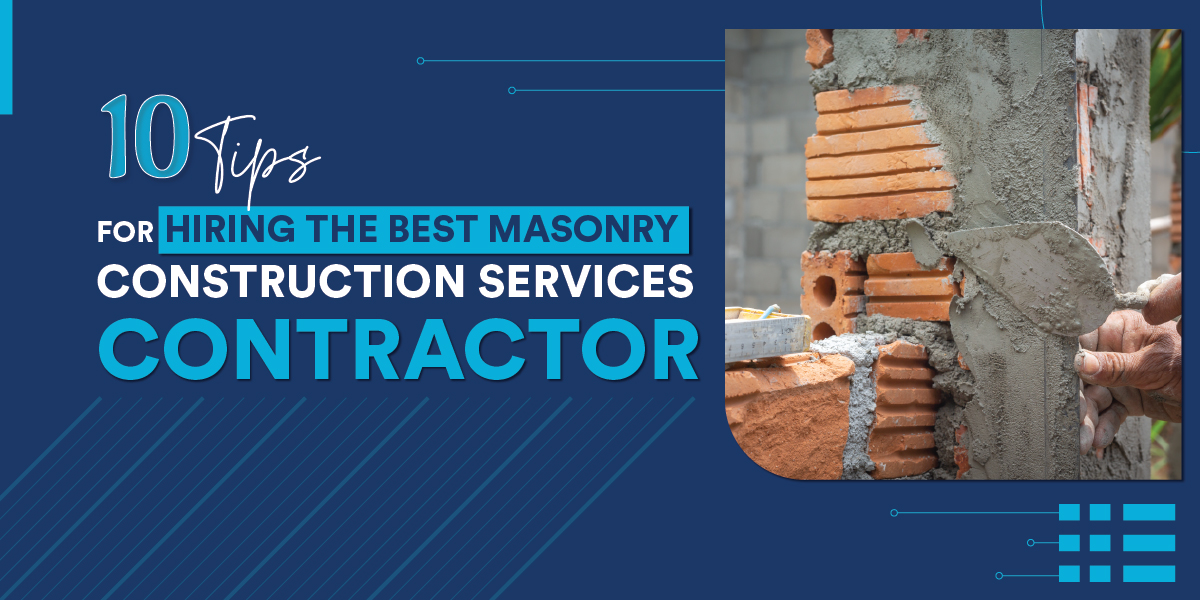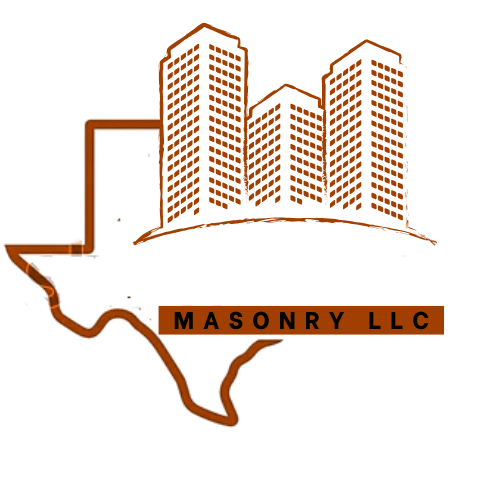A solid and long-lasting structure demands the correct materials, specifically their ability of professional concrete masonry services to prevent the flow of elements. In most cases, moisture has become a cause of problems such as molds, wood destruction, and damage to a structural element. In this case, what may protect mold and water infiltration particularly well is concrete masonry. Concrete masonry walls be it concrete block or poured concrete are well known for resisting water. Concrete’s Natural Resistance to Water Concrete masonry walls inherently resist water intrusion. Unlike wood, drywall, and other porous building materials, concrete does not absorb water easily. This is because it is a dense material with low porosity. As a result, concrete prevents the easy passage of water through it as happens in other materials. Generally, water leaves a concrete surface or drips down the surface rather than getting absorbed. For example, it also has an added meaning that helps in preventing mold, which needs a wet, moist place to grow. However, it should be pointed out that although concrete masonry is resistant to water, it is not waterproof. Penetration of water into the concrete can take place over time through cracks, joints, and an area not well sealed. Therefore, maximum sealing and proper construction techniques of concrete masonry must be assured, including vapor barriers and effective drainage systems. Mold Needs Moisture to Grow There are three basic requirements for mold growth namely, moisture, an organic food source, and the right temperature. Probably, the best way to prevent mold is through lack of moisture. In that area, concrete masonry stands out because concrete is highly resistant to water penetration; hence, it inhibits the collection of moisture required by molds to grow. In concrete masonry construction, water from where it could otherwise penetrate walls and lay down conditions to its preferred growth, mold is deflected or redirected away from the building itself. It has a propensity to heavily reduce the chances of experiencing mold issues in basements, crawl spaces, or bathrooms where water tends to congregate. Thermal Mass and Moisture Regulation Probably one of the least known advantages of concrete lies in its thermal mass, namely, the ability of the material to absorb and store heat. Concrete possesses a high thermal mass that, apart from regulating indoor temperatures, also helps regulate moist levels. In areas with fluctuating humid levels, excess moisture from the air gets absorbed by the concrete walls. As the air dries out, it can draw moisture stored in walls back into the environment, and indoor humidity is therefore balanced, dispelling the conditions that cause mold. Concrete Masonry Walls Are Fire-Resistant While the interest here is more with the prevention of mold and moisture, it is also worth noting that concrete masonry walls also are fire-resistant. This may occur indirectly in building fires where the suppression agent is water; however, this is secondary while providing some help in preventing the growth of mold. Concrete possesses fire-resistance properties that allow it to stand at higher temperatures without degrading or absorbing water, thereby maintaining its moisture-resistant properties after a fire. In addition, concrete does not release harmful toxins if exposed to extremely high temperatures; therefore, there is little chance that it would create an atmosphere that would thrive in the development of mold after a fire. The Finale: With proper construction techniques, sealants, and vapor barriers, concrete masonry walls can provide long-lasting protection against mold, moisture, and the health issues that they bring with them. Whichever it is, be it building or renovating a house, choosing concrete masonry will be quite a relief knowing that your building is going to be dry and healthy and free from mold for many years to come.
The Future of Masonry: How Technology is Shaping the Industry
Masonry is one of the most important factors of human civilization and has evolved significantly over the years. But of late, with the rapid development of materials sciences and techniques, masonry has seen huge changes as well. Finding the right masonry contractor in Dallas, TX can be a huge challenge. Correa Masonry LLC has delivered hundreds of successful projects, and we can help. Read through our testimonials and reviews to find out why we are the most preferred masonry contractor in the city! An Introduction to Modern Masonry Modern masonry has come a long way with better materials, techniques, and lower costs. One of the hallmarks of masonry projects today has been the ease with which it combines traditional techniques with innovative methods. With modern machinery, masonry has become a lot more efficient and projects can be executed with high precision. Masonry can also be combined with other materials to create a more aesthetic and functional construction. Modern masonry processes can help keep up with increasing industry demands and yet lower the carbon footprint through the use of better materials. Advanced Robotics in Masonry The introduction of robotics has been one of the biggest steps forward in masonry in recent years. For many years, robotics has been the answer to many of our issues, and now it has become relevant in construction. Robotics can be the answer to repetitive tasks in the construction niche, which require a high degree of accuracy. It can reduce the factor of human error in processes like bricklaying and ensure higher throughput per hour. Introducing robots also reduces the labor costs and delivers a better quality project in considerably less time. Robots can also work in constrained spaces and in harsh environments that people wouldn’t be able to without significant protection. 3D Printing Masonry Techniques Another innovation in masonry has been the ushering in of 3D printed materials and structure. For years we have relied on simple materials for masonry construction but with 3D printing, you can combine the strength of several materials without any of the weaknesses. A good example of this technique is with Fibre-reinforced Polymer (FRP) bricks used instead of bricks. FRP bricks are lighter than regular types of bricks and also don’t need as much time to cure which means they can be produced faster as well. Sustainable Building Materials As we move into the 21st century, the need of the hour is to reduce our environmental impact. Historically, masonry has always been one of the biggest contributors to global warming due to its need for specialized materials. Today, we are heading towards much more eco-friendly materials and production techniques. Advanced material sciences allow for the creation of much more resilient construction components that are much more energy efficient. They are more durable than current materials and compliant with various green building codes that are enforced today. Advanced Workforce Training An area that we have to focus on is training construction staff to adapt to new methods and techniques. The emphasis is going to be more on tech-based skills than manual labor. There will be high tech learning solutions like virtual reality and augmented reality which can help train them better and quicker. As technology improves, people will interface with new types of machinery and robotics that can enhance their productivity and prevent mishaps during construction. Final Frontier – Automated Construction With the advent of better AI-driven construction methods, the last hurdle we face is completely automated construction. This type of technology would bring in so many benefits including reduction of human error, no need to supervise, building in inhospitable conditions, and quicker turnarounds. Robots will also choose the right type of material based on the requirement which will produce a stronger construction without wasting material. Automated construction also allows for much more cost-effective and quicker scaling for larger projects. While we are still far from it, automated construction will become reality in the years to come. The future of masonry looks bright and these advancements are something that we are all looking forward to. If you want a contractor based out of Dallas, TX who is prepared for future advancements in masonry, get in touch with Correa Masonry LLC. Our team uses the latest technology and techniques so our customers can reap the benefits!
10 Tips for Hiring the Best Masonry Construction Services Contractor
When you want to complete a masonry project, you need it done well and completed in a quick time. The right option would be to hire a professional masonry construction contractor. But the question arises – how do you choose the right company for the job? With decades of collective experience, Correa Masonry LLP can be your contractor in Dallas, TX. We have certified experts working for us who can deliver projects of any size that surpass your expectations and are within deadlines. We take you through what you need to do when hiring a masonry contractor for your project. 1. Evaluating Experience As the adage goes, ‘there’s no substitute for experience’, and nowhere is it more true than with masonry. It’s a general rule of thumb in this industry that the more experienced the contractor is, the better the quality of the finished project will be. Experience dictates the choice of materials, techniques, and machinery used in the project. Opt for contractors with at least two or three years in the business. A good contractor would have completed several different types of projects in that time and would be a viable candidate for your needs. 2. Understanding the Terminology An area where you have to do some reading would be masonry terminology. Words like relieving arch, anchor bolt, header, frog, and parapet are a few terms that can cause significant confusion for homeowners. As a customer, if you’re aware of these terms, you will have a better idea of what is going on in the project. It will also put you in a better position when you have to negotiate the cost of the project. The contractor can also communicate better with a homeowner who is used to these terms and keeps the project moving along smoothly. 3. Verifying Credentials and Licenses Any type of building needs proper licenses both at the state and local levels. The contractor you’re choosing also needs proper credentials from reputed bodies to prove that they’re competent. Masonry contractor certifications can vary depending on where you live. In Texas, there are several bodies that you can confirm your contractor’s credentials with. Better Business Bureau (BBB) and Angie’s List are popular websites that have a host of different contractors available for you to verify. You can also check their credentials at Texas Department of Licensing and Regulation (TLDR) and the Texas Masonry Council. 4. Going through Reviews Checking reviews of contractors has become easier than ever with Google. Just searching for their name can give you all the reviews of their business listed on the top right of the page. Going through a few reviews can give you important insights into their business. Check on what kinds of ratings they attract and how they deal with disgruntled customers. You should be wary of contractors that only have five-star ratings as this might be signs of review tampering. 5. Comparing Multiple Quotes Don’t be afraid to get quotes from multiple sources in your area. When getting these quotes, get a detailed breakdown of the costs and not just a flat rate to get things done. The reason is that the different particulars billed can give you important information about the process they follow during the project. You can use this to compare with the other quotes you’ve gotten. The lowest quote might not always be the best! 6. Assessing Portfolio and Past Records Portfolios are really important in this business and it can help you decide if you want to hire the contractor. When looking through portfolios, check if what they’re showing matches the project that you’re looking to get done. Request for photos and videos of the completed projects rather than just testimonials. 7. Evaluating the Contract Always ensure that you assess the building contract thoroughly because there are a lot of chances you can misinterpret certain aspects of the process. Any building contract should clearly define the scope of work, payment schedule, and timeline. It’s also a good idea to include dispute resolution and related terms in the contract. 8. Preparing a List of Questions As a customer, you need to ask about everything related to the project! Details about workforce, machinery, material sourcing, timeline, and contingencies are all good questions to start with. Don’t forget to clarify how they handle cleanup and disposal. Ensure they do it as cleanly as possible without disturbing the neighbors and in an environmentally conscious manner. 9. Visiting Their Offices If everything else pans out, visiting their office is a great idea. It gives you the chance to put faces to names and to see how receptive they are to new customers. You’re looking for a professional contracting unit, and the staff should be courteous. If the office is shabby and badly maintained, it should definitely raise red flags. 10. Negotiating the Final Price The final step of the process is negotiation and signing the contract. This is where both parties need to understand each other when it comes to costs and payment terms. Don’t hesitate to ask about discounts and promotions with a contractor; after all, it’s the hard-earned money you’re spending! The estimated project cost should have clearly defined terms on where the money is going. Getting the right kind of masonry contractor can be hard if you don’t know where to look. If you’re in Dallas, TX, Correa Masonry LLP is the right choice. Having completed hundreds of projects, we are a professional masonry contractor who can give you the best and at a great price. Check out our website or call us to learn more!



